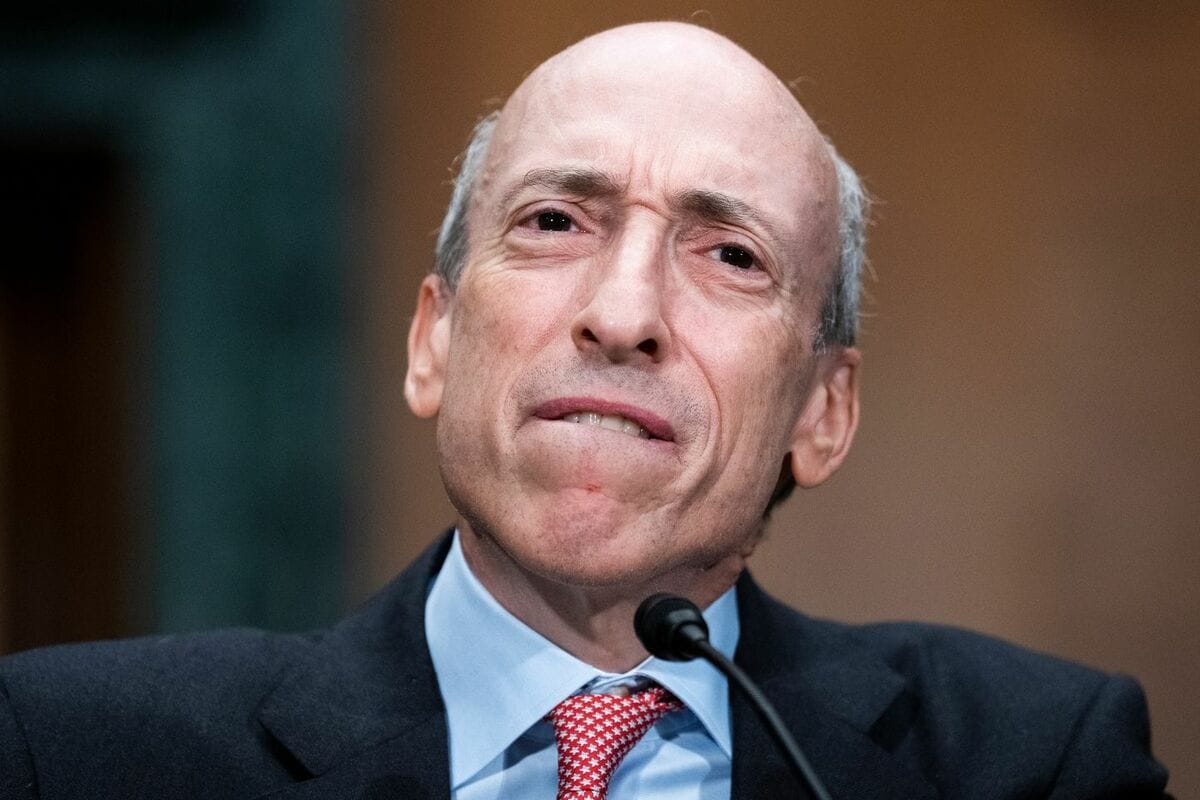- Crypto Uncomplicated
- Posts
- The overlooked nuclear risk to crypto just jumped a level
The overlooked nuclear risk to crypto just jumped a level
The SEC strikes again

Sometimes it's easy to fall into the trap of thinking, "Something has dropped in price. Surely it must come back."
Buy low, sell high, right? Well, life is never as easy in an environment that moves as fast as crypto.
I could probably cite an infinite number of examples to prove why crypto is exactly the place where faces get ripped off by making the exact mistake of comparing price across two different points in time where facts have materially changed.
One example was with the collapse of Terra, and how price was materially different at one point in time, when the project was functioning perfectly normally, and $0 the next, when the project showed signs of cracking.
Writ large, crypto runs the same risk. And right now, a large sleeping giant is beginning to change its tune. Something that made my list of warnings earlier this year:
I'm talking about the Securities and Exchange Commission. Of course, they started the year off with a bang by hitting crypto lender BlockFi with one of the largest settlements in crypto's history. But since then they had been largely quiet ... until this summer and especially now.
That's because last week, SEC Chair Gary Gensler re-opened the door on whether ethereum constitutes a security. After a congressional hearing last week, Chair Gensler told reporters that Ethereum's upgrade to ditch bitcoin's proof-of-work mining security for proof-of-stake meant people would be receiving tokens on their staked ether, and thus (in his eyes) have an "expectation of profit" that would trigger a prong of the government's test to figure out if something is a security or not.

SEC Chairman Gary Gensler testifies during the Senate Banking, Housing, and Urban Affairs Committee hearing titled Oversight of the U.S. Securities and Exchange Commission, in Dirksen Building on Thursday, September 15, 2022. (Tom Williams/CQ-Roll Call, Inc via Getty Images)
“From the coin’s perspective…that’s another indicia that under the Howey test, the investing public is anticipating profits based on the efforts of others."
Of course, from a technological perspective that take is somewhat laughable. A proof-of-stake mechanism is just a way to secure the network in a decentralized way much like proof-of-work (which requires computers competing against each other to confirm transactions on a blockchain.) But when you take your technology glasses off and put your security glasses on, it's easy to see why it could look similar to a security like a stock in the sense that you buy something, and then get more of that thing (similar to a stock that might split 1-for-2.)
I'm not going to go too deep on the Howey test again, but the point is by saying these things, Gary Gensler and the SEC are beginning to sound the alarm again on how hard they want to push the idea that some projects in crypto actually are securities. They might not go hard on that point for ethereum, per se, but by calling out proof-of-stake — a consensus mechanism that plenty of other less popular and less decentralized projects also use — they open the door to go after other coins.
As soon as other coins start getting dubbed "securities," it's not hard to imagine there would be a dramatic repricing that hits bitcoin and ethereum, even if they are most likely too big to fall back into the SEC's crosshairs. That type of regulatory action is not good by any means. It would mean large crypto exchanges (which have not registered with the SEC) would be in violation of securities law by selling those unregistered securities.
Now, you could make the argument that cleaning this stuff up is good for consumer protection, and thus, the entire crypto world, in the long-run. That could be true. But it doesn't negate the fact that in the short-term, prices would be dented big time.
Admittedly, it hasn't gotten a lot of media attention, but quietly some major players have been mentioning potential securities issues. I'm not connecting the dots necessarily, but generally those operators don't do so unless there is a reason. For example, Grayscale added some language to their product offerings.
All I'm saying is the SEC is getting more active and industry players are playing ball and signaling a tighter view of the facts. It's unclear when the SEC is going to make good on the posturing it's making now. But it might be a convenient time to strike — after prices have already fallen by so much — that they won't look like the "bad guy" in quite the same way as they would have if they did so at the peak.
Be careful!